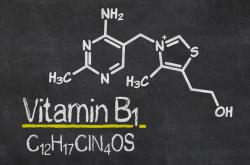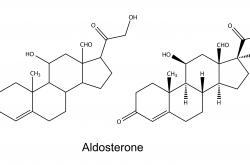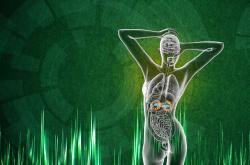Getting the Right Nutrients for Your Stressed Out Brain
Supporting the health of your brain is an important part of any fatigue recovery plan. Learn how to create the kind of dietary plan that provides the important nutrients for your brain.
Patients suffering from the affects of fatigue often spend much of their recovery time and effort focusing on their adrenals – often to the exclusion of other critical organs. Among those critical organs, none is more important to overall health than the brain. In fact, since the stress response originates in and is controlled by the brain, the smartest thing any fatigued individual can do is to give that vital organ the attention it warrants.
This is especially true in the area of nutrition. In fact, without a well-balanced and nutritious dietary plan, the brain can undergo the type of severe stress that can leave it susceptible to a host of problems. The key to preventing those problems is to ensure that the brain has the nutrients it needs for ideal health and peak performance. Those nutrients must include all of the important macronutrients, micronutrients, and even essentials like oxygen and water.
Macronutrients
The cells in your brain are like the cells in the rest of your body when it comes to nutrients. They require those macronutrients that are essential for maintaining bodily health, and can cause the brain to suffer a variety of ailments when those nutritional requirements are not met. That means that you need to eat a balanced diet that provides the right sources of proteins, carbohydrates, and healthy fats.
Proteins
Proteins are critical if the body is to have the resources it needs for building the amino acids the brain needs for its neurotransmitters. Without these chemicals – like serotonin, dopamine, and others, the brain has difficulty sending messages back and forth between brain cells. These chemicals are responsible for your ability to concentrate, aid with memory, and have an impact on cravings, your sleep cycle, and even your mood.
You can obtain protein from a variety of food sources, including meat, poultry, dairy products, eggs, fish, and nuts. Since the best diets are those that exclude artificial compounds like steroids and the various growth hormones used with many livestock these days, it is always best to look for protein source that are organic, or in the case of meat, grass-fed. And, while it is possible to get enough protein eating a vegetarian diet, though such a diet usually requires vitamin supplementation to ensure adequate supplies of the B-complex micronutrients.
Carbohydrates
Carbohydrates have received a lot of bad press over the last few decades, as many diet gurus have blamed them for everything from the rising rate of diabetes to obesity. The fact is, however, that they are an important source for the glucose your brain needs to power its cells. While you can get that glucose from other sources – most notably when fat is converted into glucose through ketosis, carbohydrates still play a critical role in the entire process. These essential nutritional elements also aid in the transport of oxygen through the blood, and are critical to balanced blood sugar levels.
The best sources of carbohydrates include starches such as squash, sweet potatoes, carrots, beets, and potatoes. White grains and wheat products can actually cause your brain volume to decrease, and can contribute to various diseases like Alzheimer’s and diabetes.
Fats
Forget what you thought you knew about fatty foods. They are actually good for you! Well, the right kind of fatty foods, that is. That’s because almost two-thirds of your brain volume consists of fat. To feed those cells, you need the type of healthy fats found in olives, coconut oil, tuna, salmon, and various seeds. With these fats, you can enjoy better functioning brain cells, and improved mood. Without them, you can suffer depression and impaired cognitive skills.
Did You Know? Cholesterol is Brain Food!
Cholesterol is not the shibboleth it’s been made out to be by many in the media. In fact, healthy cholesterol is critical for good brain health. Just look at the problems you can suffer without it in your diet:
- Loss of memory and dementia
- Increased anxiety
- Lack of cognitive ability
- Dramatic mood swings
- Depression
- Severe headaches
Do yourself a favor: don’t believe all the negative hype you read about this vital component of good health!
Micronutrients
In addition to those macronutrients, your brain needs critical micronutrients as well. These include important vitamins and minerals that are often lacking in many diets.
B Vitamins
B12 and other B-complex vitamins are important for elevating mood, and enhancing your ability to deal with the stressors you encounter each day. B12 is an essential nutrient that can help you to avoid everything from brain fog to dementia. Since it is only found in products made from animals, vegetarians should use supplements to fulfill their B12 requirement.
Vitamin D
Vitamin D is one of the most underappreciated vitamins out there. This “sunshine vitamin” works to improve memory and mood, and can help you avoid a decline in your cognitive ability as well. Since there are few food sources that contain this vitamin in any significant amount, supplementation is often the best way to get it.
Omega-3 Essential Fatty Acids
The brain needs docosahexaenoic acid, or DHA – and that means that you need to eat the types of food that can provide this essential omega-3 fatty acid. DHA is critical for proper brain function and the maintenance of a healthy nervous system.
Magnesium
On the mineral front, few are as important as magnesium. It can help with concentration, energy levels, and stress resistance. Again, this is a nutrient that pretty much requires the use of supplements to ensure that the right levels are reached on a daily basis.
Oxygen and Water
Finally, never forget the elemental factors that play such a critical role in your brain’s health: oxygen and water. Brain cells need to be hydrated, and they need consistently high levels of oxygen to operate at peak efficiency. So, drink plenty of water, stop any behaviors that limit your oxygen intake, and be sure to get the kind of daily exercise you need to ensure maximum oxygen efficiency.
In your battle against stress and fatigue, your brain can be your worst enemy or your best ally. To ensure the latter, you have to provide it with the nutrients it needs to perform at a consistent level of efficiency. Feed your brain properly, and you’ll have a much clearer path to victory in your struggle for recovery and better health.
You might also be interested in:
- Nutritional stress and health. http://www.stress.org.uk/Diet-and-nutrition.aspx
- Food for Thought: What the Ultimate Organ Needs to Stay Healthy. http://www.thedoctorwillseeyounow.com/content/nutrition/art3258.html
- Eat Smart for a Healthier Brain. http://www.webmd.com/diet/eat-smart-healthier-brain
- Feed Your Body, Feed Your Brain: Nutritional Tips to Speed Recovery. http://www.brainline.org/content/2010/12/feed-your-body-feed-your-brain-nutritional-tips-to-speed-recovery.html
- Beating Stress through Nutrition. http://psychcentral.com/lib/beating-stress-through-nutrition/


















Leave a comment